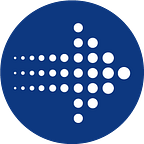Creating a World Class Search Experience Through Academic Collaboration
Search technology plays an important role at SEEK. We harness big data from job ads, job seekers’ job searches, profile data and employers’ on-site behaviours. Through world-leading search technology, we can deliver the most relevant outcomes for our customers’ needs in an efficient and effective manner.
To build on the capability of our search technology, in 2016 SEEK, RMIT and The University of Melbourne were awarded research funding by the Australian Research Council (ARC) after submitting a joint proposal to explore the complex search needs of our job seekers and employers. Employment-related search (searching for jobs and searching for job seekers) is a very specific domain. It leverages techniques from generic Web search but ultimately SEEK needs to ensure our search is nuanced to cater for the specific needs of job seekers and employers. This is where the academic collaboration can play a vital role.
The Government and SEEK-funded collaboration have provided SEEK the opportunity to work with really smart people who are experts in their field — in this case, world class search experts. The universities have benefited as PhD students and academics are always looking for quality anonymised data to work with and problems to solve. So, it’s been a win-win all around!
What have we discovered?
Three years into the project we have learnt a huge amount from the collaboration. While we were already focused on understanding and improving user search experience, the academics with expertise in the areas of Information Retrieval and Artificial Intelligence (AI) have brought us insights from outside the employment-related search arena. This includes both cutting edge academic research as well as industry research collaborations, ranging from global tech giants to local Australian companies in the medical and media domains.
Insights such as understanding the fundamental differences between general web search users and SEEK users have allowed us to improve our search experience on our website and in Talent Search, helping both job seekers and employers.
Did you know that general Web search users rarely go beyond the first page of results, while SEEK users (both job seekers and employers) will tend to view on average three pages of search results? This is because there is a higher cost involved in missing out on the dream job or the ideal candidate!
One of the improvements the team made last year to SEEK’s job search, was to automatically expand users’ search queries, thus offering them more relevant job ads. As a result there was a 6% increase in the number of job applications.
On a related topic, here’s what Bahar Salehi (research fellow, University of Melbourne) had to say:
As you know within SEEK, we have two main types of users: job seekers who provide CVs and employers who provide job advertisements. There is a good chance that these two types of users have potentially different patterns of language use, which should be considered when connecting the two sides of the market through SEEK search products.
Another line of research that the team is currently working on is the topic of ‘AI fairness’. We can use this to ensure the transparency and explainability of cutting-edge AI techniques and prevent amplifying biases in our data when improving our search. Damiano Spina, our research fellow from RMIT, expands on this idea:
We are currently defining optimisation metrics for fairness in Talent Search results. In particular, we are analysing a feature in Talent Search called ‘Hide names’ that anonymises job seeker profiles and is aimed at helping employers remove unconscious bias from their recruitment process. It’s crucial to control how protected attributes such as gender, ethnicity, etc. are correlated with the decisions made by the search system.
Some project outcomes
Over the course of the project, 11 research papers have been published and presented at international conferences, three of them being co-authored by SEEK employees, with two of these being awarded the best paper. This provides great exposure for SEEK, showing that we are innovating and collaborating with world-class researchers in the Information Retrieval and Artificial Intelligence domains.
“It’s been really exciting working on this project. The insight we have gained has been invaluable, and it’s fantastic having academics share their learnings and deep knowledge with us. This is the first of what we hope will be many SEEK and University collaborations, as it really is beneficial for both parties, as well as our job seekers and employers. Over time we hope to expand out the remit of this project by looking at the broader business and leveraging this collaboration in order to solve big problems for SEEK across the business, not just limited to Search.” Evelyn Balfe, SEEK’s Head of Search.
This post was written by Evelyn Balfe, Head of Search and Sargol Sadeghi, Senior Search Quality Scientist at SEEK.
